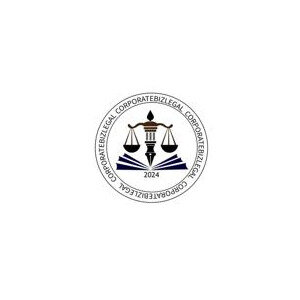Best International Trade Law Lawyers in Nepal
Share your needs with us, get contacted by law firms.
Free. Takes 2 min.
Or refine your search by selecting a city:
List of the best lawyers in Nepal
About International Trade Law in Nepal
International Trade Law in Nepal encompasses the regulations and agreements that Nepal adheres to as part of its international trade activities. This field involves a complex interaction between domestic laws, international treaties, and global trade practices. Nepal, as a member of the World Trade Organization (WTO) and other regional trade agreements, has committed to several international standards and regulations. The aim is to facilitate smooth and fair trade practices, enhance economic growth, and protect domestic industries. Nepal's Trade Policy and related legislation set the framework for international trade operations, addressing issues such as tariffs, import and export regulations, and dispute resolutions.
Why You May Need a Lawyer
Individuals and businesses may require a lawyer specializing in International Trade Law in various situations, including:
- Negotiating and drafting international trade agreements or contracts to ensure compliance with local and international legal standards.
- Managing disputes related to import/export activities, such as customs duties, tariffs, or contractual breaches.
- Advising on regulatory compliance and ensuring adherence to international trade regulations, including WTO agreements.
- Dealing with cross-border intellectual property rights protection and enforcement.
- Understanding and navigating trade policies that affect specific sectors, such as agriculture, manufacturing, or services.
Local Laws Overview
Here are some key aspects of local laws relevant to International Trade Law in Nepal:
- Customs Act and Regulations: Governs the procedures and requirements for importing and exporting goods, including customs duties and valuation.
- Trade Policy 2015: Provides guidelines for enhancing trade competitiveness and integration into the global market.
- Foreign Investment and Technology Transfer Act: Regulates foreign investments and stipulates conditions for technology transfer in Nepal.
- Intellectual Property Rights Laws: Protects trademarks, patents, and copyrights in the context of international trade.
- Environmental Regulations: Addresses trade-related environmental standards and practices.
Frequently Asked Questions
What is the significance of Nepal's membership in the WTO for international trade?
As a WTO member, Nepal has access to global markets under standardized trade rules and can benefit from trade liberalization and dispute resolution mechanisms.
What challenges might I face in exporting goods from Nepal?
Exporters may encounter challenges such as compliance with foreign standards, tariff and non-tariff barriers, and logistical hurdles.
How do tariffs and duties affect my trading business?
Tariffs and duties impact the cost of importing and exporting goods, which can influence pricing, competitiveness, and profitability.
Are there specific restrictions on certain goods in Nepal?
Yes, some goods are subject to import/export restrictions due to public safety, environmental concerns, or protection of domestic industries. It's essential to check current regulations.
How can intellectual property rights be protected in international trade?
Protection of intellectual property involves registering trademarks, patents, or copyrights and enforcing rights through legal channels domestically and internationally.
What is the procedure for resolving trade disputes in Nepal?
Trade disputes can be resolved through negotiation, mediation, arbitration, or through the judicial process, depending on the nature and complexity of the issue.
How can I ensure compliance with international trade regulations?
Consulting with legal experts, staying informed about relevant laws, and implementing robust compliance systems are critical steps for ensuring regulatory compliance.
What roles do export and import licenses play in trading?
Licenses authorize the legal handling, importation, or exportation of specific goods, ensuring regulatory compliance and monitoring by authorities.
Are there any incentives for exporters in Nepal?
Yes, the Nepalese government offers various incentives to exporters, such as subsidies, tax benefits, and support for market access and development.
What is the process for drafting an international trade contract?
Drafting involves defining terms clearly, ensuring alignment with applicable laws, and covering contingencies through provisions for dispute resolution, payment terms, and liabilities.
Additional Resources
For those needing further assistance or information, these resources can be invaluable:
- Ministry of Industry, Commerce and Supplies: Provides updates on trade policies and guidelines.
- Nepal Chamber of Commerce: Offers support and resources for businesses engaged in international trade.
- Customs Department: Source for customs procedures, tariffs, and other relevant information.
- Nepal Law Commission: Access to legal documents, acts, and publications related to international trade.
Next Steps
If you require legal assistance in International Trade Law, consider the following steps:
- Identify and consult with a lawyer specializing in international trade to discuss your specific needs and circumstances.
- Gather all necessary documents and information relevant to your trade activities to facilitate efficient legal assistance.
- Explore consulting with trade associations or chambers of commerce for support and guidance.
- Stay updated on relevant changes in trade policies or regulations that may affect your business.
Lawzana helps you find the best lawyers and law firms in Nepal through a curated and pre-screened list of qualified legal professionals. Our platform offers rankings and detailed profiles of attorneys and law firms, allowing you to compare based on practice areas, including International Trade Law, experience, and client feedback.
Each profile includes a description of the firm's areas of practice, client reviews, team members and partners, year of establishment, spoken languages, office locations, contact information, social media presence, and any published articles or resources. Most firms on our platform speak English and are experienced in both local and international legal matters.
Get a quote from top-rated law firms in Nepal — quickly, securely, and without unnecessary hassle.
Disclaimer:
The information provided on this page is for general informational purposes only and does not constitute legal advice. While we strive to ensure the accuracy and relevance of the content, legal information may change over time, and interpretations of the law can vary. You should always consult with a qualified legal professional for advice specific to your situation.
We disclaim all liability for actions taken or not taken based on the content of this page. If you believe any information is incorrect or outdated, please contact us, and we will review and update it where appropriate.
Browse international trade law law firms by city in Nepal
Refine your search by selecting a city.

















